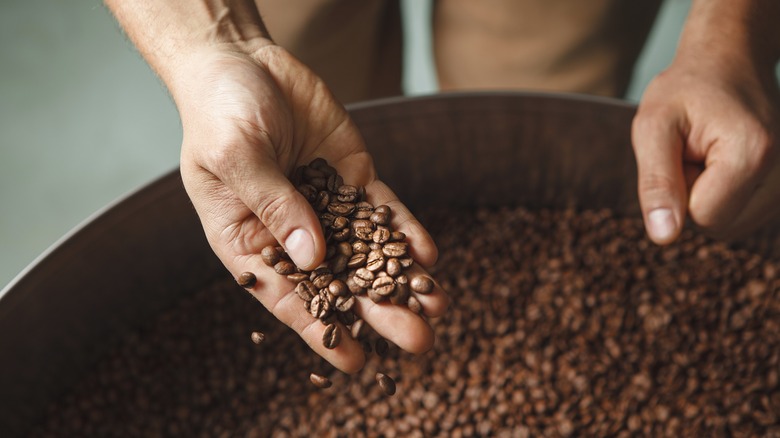Why Your Morning Cup Of Coffee Might Be Getting Even Pricier
Coffee beans are a commodity hotter than a freshly brewed pot. In tune with recent inflation that has affected prices across the grocery store aisle, experts project the price of a cup of coffee will be hiking up even more in the near future. These climbing costs are attributed to climate change.
The world's climate holds the food industry tightly in its grip and coffee farms are becoming increasingly impacted by unstable weather patterns. Droughts, floods, frost, and other intense climate events have inhibited coffee bean producers from meeting the demand for their crop.
As of December, the price of arabica beans — the world's most ubiquitous type of coffee bean — rose to $3.50 per pound, which is up 70% since the start of 2024. This month marks the highest price the crop has seen since 1977. Brazil and Vietnam are two of the world's most prolific coffee bean producers and these countries have experienced intense weather anomalies, especially droughts. The frequency of these weather events is on the rise, which makes vulnerable crops like coffee beans more difficult to grow.
How will this impact the coffee industry?
Increased prices topple down the consumer chain like dominos. Because climate change is decreasing exporters' crop yield, they must increase their prices to level out high demand with a low supply. To compensate, distributors and roasters must also hike their cost. In turn, consumers pay more for a cup of coffee. Experts predict the price of a pound of coffee beans could rise by another 50 cents to 1 dollar in the near future.
The state of coffee bean crops has been under the microscope for the past few years because of climate change. In 2021, the Intergovernmental Panel on Climate Change published a report about global climate patterns which sounded significant alarms pertaining to the food industry. It noted that food insecurity, inequality, and shortages are all on the rise. Though the food industry itself has been called out for its carbon footprint, some hope remains. Starbucks announced a plan to source carbon-neutral green coffee by 2030 to curb coffee production's impact on the climate.

